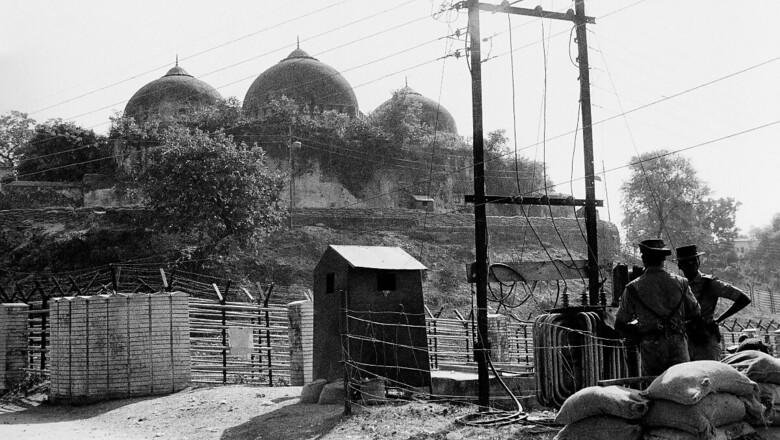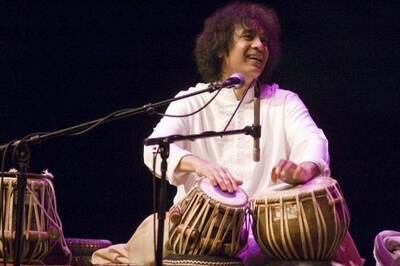
views
In 1990, then serving IPS officer Kishore Kunal was overseeing the dialogue between Muslims and Hindus on the Ayodhya land dispute to find an amicable solution. But four days after its last meeting, the Babri Masjid was razed to the ground.
As the Officer on Special Duty (OSD) of the Ayodhya Cell under three prime ministers — VP Singh, Chandra Shekhar and PV Narasimha Rao — Kunal compiled several reports about the developments with regards to these talks, which he says were going in the right direction.
Kunal, who now is an executive officer in a temple in Ayodhya, wholeheartedly supports the views of the CBI court, which, on Wednesday, acquitted all 32 accused in the 1992 Babri Masjid demolition case and dismissed the CBI’s case of it being a “pre-planned” conspiracy.
“We know for a fact that the CBI case was actually fabricated. There was no conspiracy in the Babri Masjid demolition,” he told News18.com in an interview.
Edited excerpts:
What are your views on the verdict?
As far as I know, the judge has said that the evidence put forth by the CBI was fabricated. He has observed that there was no conspiracy angle to the demolition of the mosque. I think it is the correct view. As an official who saw the events from up close, I can say with 100% conviction that there was no conspiracy in the razing of the mosque.
So how did thousands of armed people from across the country assemble on December 6 and demolish the mosque?
There are two aspects to this. First, that Kar Sevaks were fed up of being called to Ayodhya repeatedly. They may have felt that they’re being called repeatedly and nothing happens each time. They had been called four times to do Kar Seva in Ayodhya in 1992. There could have been a feeling, as is the saying in Bihar, na rahega baans, na bajegi bansuri.
The second aspect to this, I feel, is that among the Kar Sevaks, there was a small but violent group which was determined in bringing down the mosque.
How were the talks progressing?
The talks were going on well, although the Muslim side had stopped attending the meetings. But I feel that if the talks had continued, it would have eventually resulted in a peaceful solution that would have been acceptable for both sides. The demolition could have been prevented.
Did you at any point during the final months of 1992 feel that the mosque was actually going to be razed to the ground?
I don’t think anyone felt certain about it. But there were some deeply unsettling events. On November 2 of that year, when so many Kar Sevaks were fired upon and killed, that was a breaking point.
When was the last dialogue held and what was discussed in it?
The last meeting took place on December 2, 1992. There was a dispute between the Hindu side and the government. The government wanted Hindu leaders to delay the <>em>Kar Seva that they had announced on December 6. But the Hindu leaders were adamant. They said that the call has been given and people have started from across the country so the Kar Seva cannot be delayed. They wanted instead the government to appeal before the court hearing the matter, which had reserved its judgment in the case, to announce its verdict before December 6. The government did not do so.
Which is why the Kar Sevaks go on to demolish Babri mosque?
There was no sign that the Kar Sevaks would resort to violence. Every Hindu leader from the big BJP leaders to Ramchandra Das Paramhans (who was the head of the Ram Janmabhoomi Nyas before its present chief Mahant Nritya Gopal Das) had also said that they will only do a symbolic Kar Seva. The mosque demolition was completely unexpected.

















Comments
0 comment